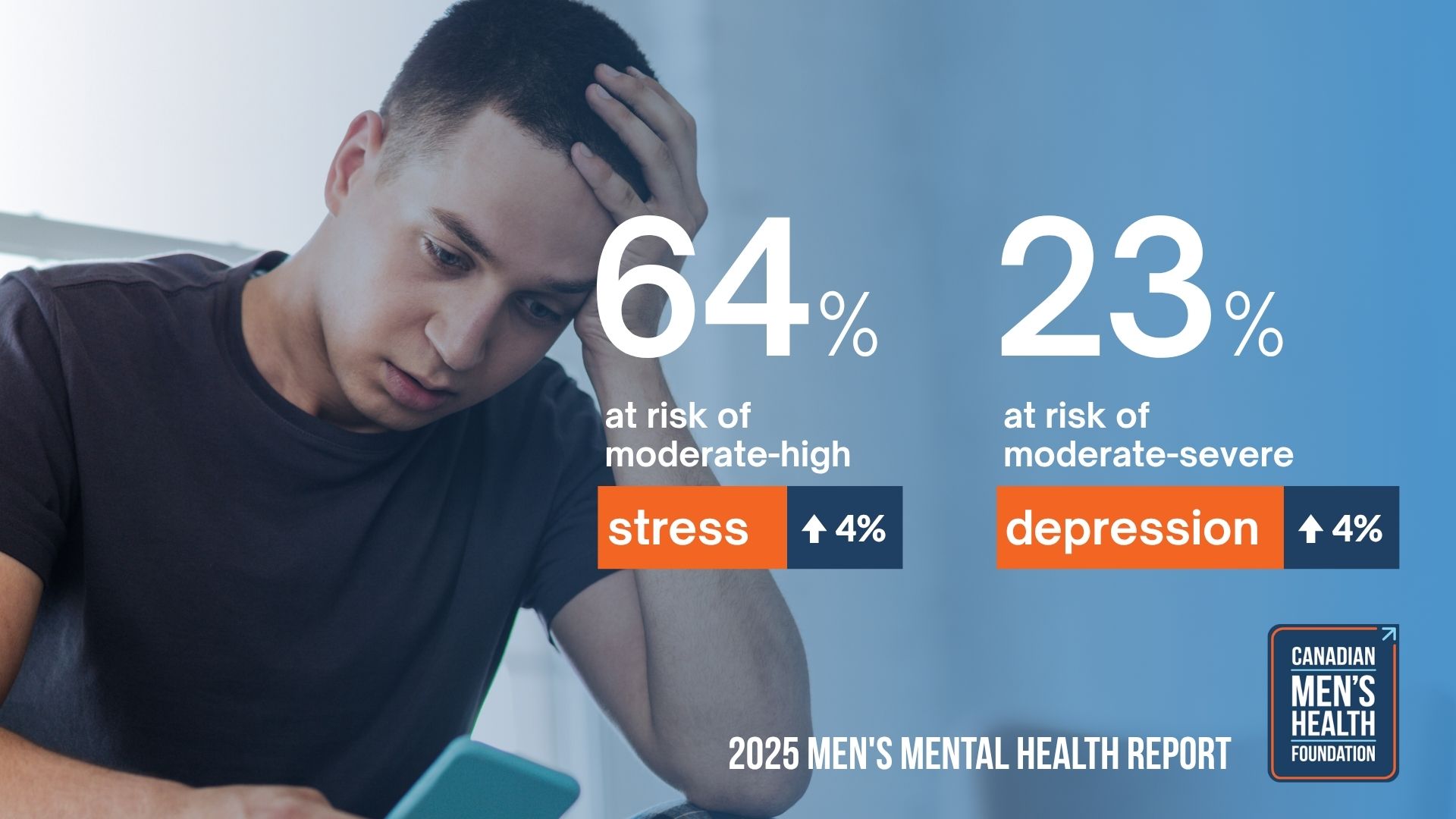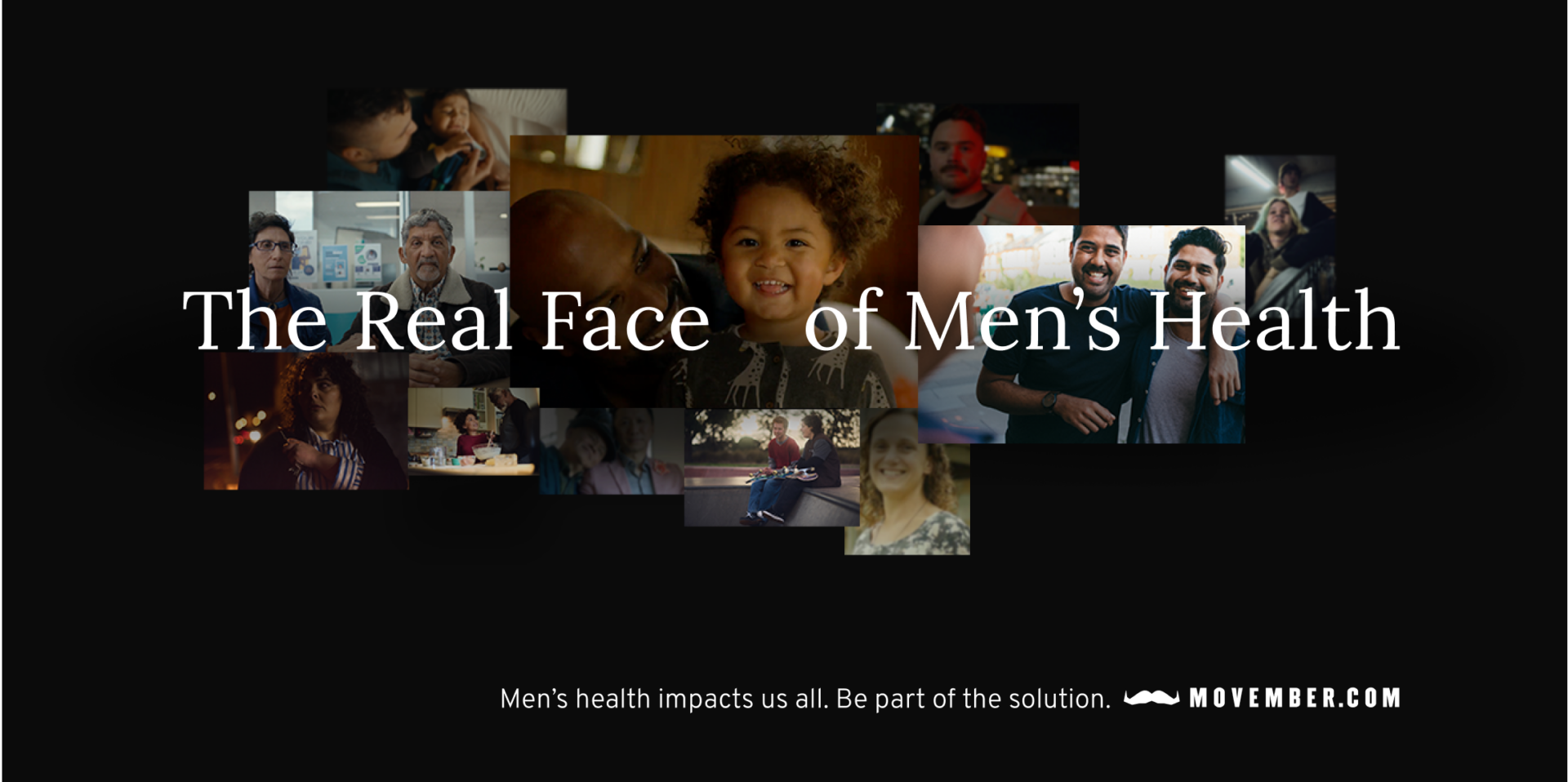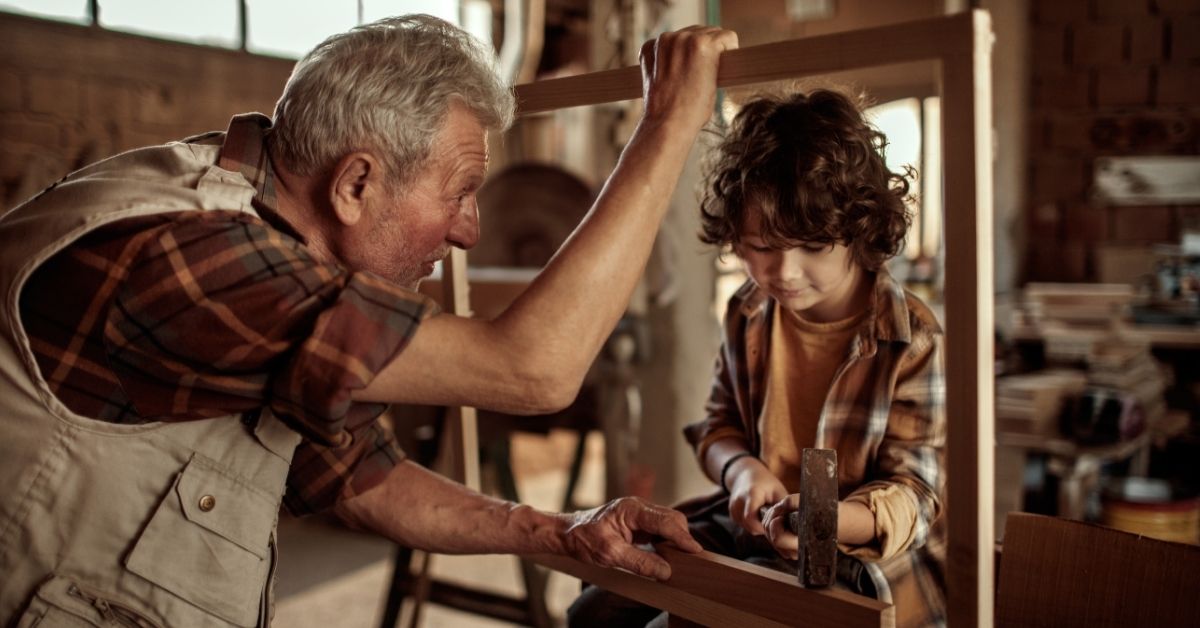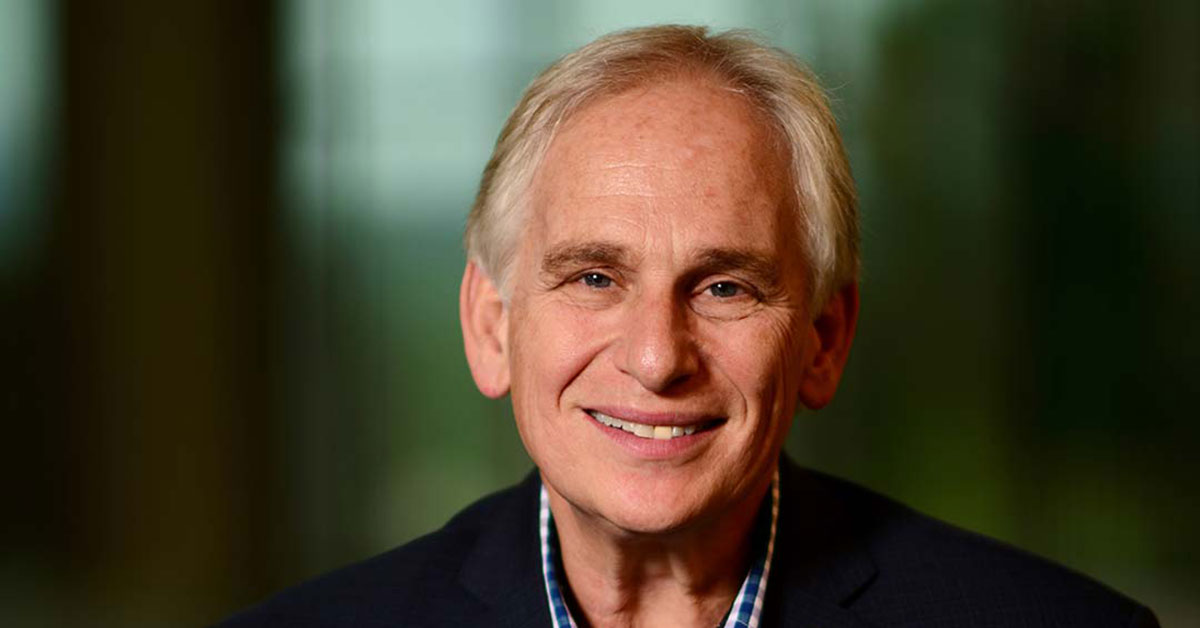“We have to do it… and it may take more than our lifetimes to get there. But let’s get started now.”
TODD MINERSON
A sense of urgency and optimism runs through the conversation between Kenton Boston, President of the Canadian Men’s Health Foundation (CMHF), and Todd Minerson, Canadian Country Director for Movember.
The two men’s health leaders sat down to talk about new research from CMHF and Movember. The message is clear: it’s time for a men’s health movement owned by everyone who cares about the men in their lives.
The stats are in—and they’re not great
According to Movember’s research, 44 percent of Canadian men are dying prematurely from largely preventable causes. “That meant 75,000 men in Canada died prematurely [in 2023],” said Minerson. “And that’s just something that we can’t accept anymore.”
The report also sheds some light on why this might be happening:
- 54% of men experience healthcare barriers
- 42% experience gender bias from healthcare practitioners
- Over half say they don’t feel actively listened to when discussing their health
Findings from the Canadian Men’s Health Foundation report growing mental health challenges:
- 64% report moderate-to-high levels of stress
- One in two is at risk of social isolation

Taken together, the data highlights a growing disconnect—and a chance to do better. Understanding how men engage with health services is the first step toward creating more supportive, responsive care that works for everyone.
Why men’s health is a community issue
The impact of men’s health ripples through families, communities, and the economy.
“There’s a huge cost, not only to men but to our whole society,” said Minerson. “Right now, two-thirds of people who are caring for a man with poor physical or mental health are saying it is impacting their own mental health, and 50 percent of those caregivers are saying that it’s affecting their finances as well.”
“One of the most inspiring conversations I had was with a woman,” Boston said. “At a retreat in Vancouver, she came up to ask what we were doing. When we told her, she started to cry. She was from Belgium. She said there is no organization in her country to help men like her son, who is struggling. That stayed with me.”
Minerson added: “There’s nobody that benefits from men not being well. In fact, the opposite is true. When men are well, more people that we care about are well. Healthier men make for healthier communities.”
He also addressed the common misconception that focusing on men’s health takes away from women’s health.
“It’s not a zero-sum game. In fact, I would argue that we owe a great debt to women’s health advocates and activists—to understand health from a gendered lens, to advocate for systems change. There’s more for us to accomplish by working together.”
Canadian men aren’t getting the help they need
“These are issues that go back as far as the ideas of ‘you gotta be tough,’ ‘you can’t ask for help,’ ‘rub a little dirt on it, it’ll get better by itself,’” said Minerson.
According to Movember’s report, many Canadian men are hesitant to see a doctor:
- 45% agree it is normal for them to avoid regular check-ups
- 65% will wait six days after noticing symptoms, and nearly a quarter will delay care for more than two years
CMHF’s research further emphasizes the challenges related to mental health:
- 67% of men are not seeking out professional mental health support services
Minerson adds that there is a lack of positive role models who show what it looks like to take care of their health. “There’s a heightened awareness now because of the media and podcasters, but the roots of this go much deeper.”
Boston agreed. “I’ve gone through my health challenges—cancer, a severe motorcycle accident—and still I feel that urge to just push through and talk to five more people today. Even though my brain might be knocking me on the head, saying, ‘Take a pause.’”

Youth are ready for change
Still, there’s hope—especially among younger men.
“They’re willing,” said Minerson. “They just need to know that you’re actually there to listen, and you’re going to go to the places where they are and speak the language that is relevant to them.”
The Movember team did, in fact, listen to young men speak about their connection to the digital world and its impact on them. They found that while individuals connect in different ways—through gaming, online communities, or influencers—many are ready for a new vision of masculinity.
“There is a desire for a different kind of manhood, a different kind of experience,” Minerson said.
A united movement for men’s health
“There’s a real opportunity for us to start a men’s health movement in this country,” said Minerson. “A movement isn’t owned by one group. It’s owned by the people who care about it.”
Movember’s motto—having fun and doing good—is part of what keeps people coming back. “It’s part of our secret sauce,” he said. “We would love people to download the report, see how it relates to their life, and share it. Get involved. Understand the steps you can take.”
Boston echoed the sentiment. “We have a campaign right now called Never Alone. We’re encouraging people to build their network. You don’t have to go it alone.”
Minerson recalled a lesson from the late politician Jack Layton: have a dream bigger than your lifetime.
“That way, you know you’re working on the important things,” he said. “It may take us more than our lifetimes to kind of get there—but let’s get started now.”
What do you think of the new research from Movember and CMHF? Discuss in the comments below.


Join guys across Canada talking about the tough stuff and getting tools to build better mental health. June is Men’s Health Month.







Let’s Talk!
Did you enjoy this article? Let us know in the comments.
0 Comments